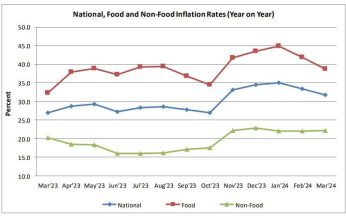Teveta in K3.4bn improvement plan
Technical, Entrepreneurial and Vocational Education and Training Authority (Teveta), with funding from the World Bank, has launched a Tevet Improvement Plan (TIP) to be implemented in the country’s 12 districts.
The sites selected to implement the plan include Malindi in Mangochi, Kasama in Chitipa, Bulunji in Rumphi, Sonda in Mzuzu, Manyamula in Mzimba, Nkhotakota business development centre in Nkhotakota, Ngodzi in Salima, Mtakataka in Dedza, Kawamba in Kasungu, Sakata in Zomba, Didi in Thyolo and Mphungu in Chikwawa.
Speaking at Malindi Community Skills Development Centre during the launch of the programme on Tuesday, Principal Secretary in the Ministry of Labour, Youth and Manpower Development Patrick Kabambe said TIP intends to train 4 000 youths in the next four years.

“The project will run for four years and has four components one of which is rural technical entrepreneurial and vocational education and training [Tevet] provision which targets youths in rural areas like the ones at Malindi where we are today.
“Tevet Improvement Plan is intended to bring skills training closer to the people. As you may be aware, there are only seven technical colleges owned by government, and as a result, such colleges are unable to absorb all school leavers that express interest to get skills training thereby leaving many deserving youths unskilled,” he said.
Kabambe said, for instance, during the 2016 intake, they received over 11 000 applications but due to lack of space, they were only able to accommodate 1 514 students leaving over 9 000 equally deserving ones.
He, therefore, said the Community Technical Colleges Programme was launched as part of government plan to increase access to quality Tevet programme in Malawi.
Teveta board chairperson Gilbert Chilinde said TIP has targeted four institutions in each of the three regions in the country.
He said the project, which will run for four years, has four components whereby the first is rural Tevet provision out of which 4 000 apprentices would be trained.
“The second component is the capacity building for 250 master craftsmen nationwide. In the third component, we would like to introduce level four diploma training in new areas and the fourth component will involve the review of curriculum in 15 occupational areas,” he said.





